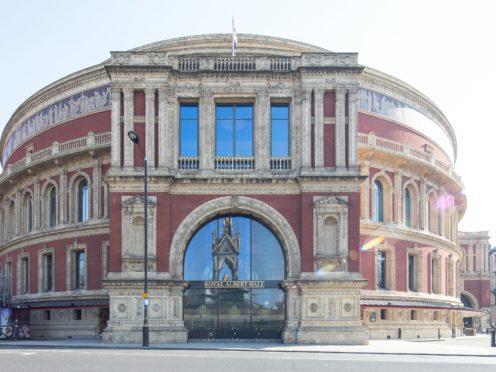The BBC Proms is planning a “virtual” opening of the world-famous event and a live last night to “bring the nation together”.
The original programme for this year’s Proms – 125 years since the first season – has been scrapped because of the coronavirus pandemic.
A new schedule has been drawn up with a “unique” and “virtual” first night in July.
More than 350 musicians will be heard together in a Beethoven “mash-up” after recording their part from home.
But the Royal Albert Hall will be home to live performances in the final fortnight of the season, from August 28.

An audience at the venue during the live events has not been ruled out, depending on Government advice at the time.
Performers, from soloists to ensembles, will be booked nearer the time when social distancing rules for the period are clear.
But the BBC said the concerts will “feature some of the greatest musicians of our time alongside emerging talent”.
The Last Night Of The Proms, to air on BBC One and BBC Two, will be “poignant” and “unique” and designed to “bring the nation together”.
Live performances will be broadcast on BBC Radio 3, BBC Four and iPlayer.
The first night will mark the 250th anniversary year of Beethoven’s birth.
A new “mash-up” of Beethoven’s nine symphonies has been created by composer, arranger and pianist Iain Farrington.
All five BBC orchestras – the BBC Symphony Orchestra, BBC Philharmonic, BBC Concert Orchestra, BBC National Orchestra Of Wales and BBC Scottish Symphony Orchestra – will take part as well as BBC singers.
The recordings will be brought together digitally and a filmmaker will be hired to bring the “Grand Virtual Orchestra” to life.
BBC Radio 3 will also air previous Proms concerts from the archive and is asking listeners for their favourite moments, while BBC Four will broadcast stand-out Proms each Sunday throughout the festival.
The BBC said: “The current situation with Covid-19 means the season we had originally planned is sadly no longer possible.
— BBC Proms (@bbcproms) April 9, 2020
“Instead the Proms in 2020 have been reconceived in a different format, but our aim remains the same – to create the world’s greatest classical music festival by reflecting world-class music-making from leading artists around the globe, highlighting emerging talent, and featuring work by some of today’s most exciting and innovative composers.”
BBC Proms director David Pickard said: “These are challenging times for our nation and the rest of the world, but they show that we need music and the creative industries more than ever.
“This year it is not going to be the Proms as we know them, but the Proms as we need them.
“We will provide a stimulating and enriching musical summer for both loyal Proms audiences and people discovering the riches we have to offer for the first time.”
The BBC Proms runs from July 17 to September 12.
